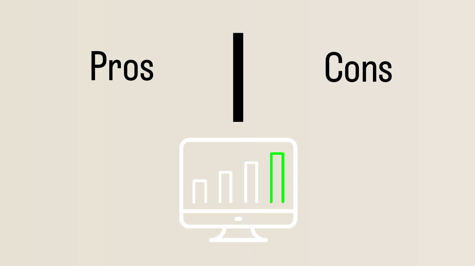A stock market is a market where stocks (securities that represent ownership in a company) are bought and sold. The stock market allows companies to raise capital by selling shares of their stock to investors, and it also allows investors to buy and sell shares in those companies. The prices of the stocks are determined by supply and demand in the market, and they can fluctuate based on a variety of factors such as company performance, economic conditions, and investor sentiment. The two well-known stock markets are the New York Stock Exchange (NYSE), the Nasdaq, and NSE (National Stock Exchange).
How to make money on it?
There are several ways to make money in the stock market:
-
Buying and holding: This strategy involves buying stocks and holding onto them for a long period of time, in the hope that the company will perform well and the stock price will increase. This is a long-term investment strategy and may not provide quick returns.
-
Day trading: This strategy involves buying and selling stocks within the same trading day, taking advantage of short-term price movements. Day traders use technical analysis and other tools to make quick, informed decisions about when to buy and sell.
-
Dividend investing: Some companies pay dividends, which are periodic payments to shareholders. Dividend investors buy stocks in companies that pay high dividends, and they receive regular income from these dividends.
-
Value investing: This strategy involves buying stocks that are undervalued by the market. Value investors look for companies that are financially sound and have strong growth potential, but are currently trading at a low price.
It is important to note that making money in the stock market is not guaranteed and there is always a risk of losing money. It is important to understand the market and do your research before making any investment decisions.
1. Buying and holding
Buying and holding is a long-term investment strategy where an investor buys stocks and holds onto them for an extended period of time, usually several years or more. The idea behind this strategy is that the company will perform well over time and the stock price will increase, allowing the investor to sell the stock at a profit.
One of the key advantages of buying and holding is that it allows investors to take advantage of compounding, which is the process of earning interest on interest. As the stock price increases, the investor can earn more money from dividends and capital gains, which can then be reinvested to purchase more shares.
However, buying and holding also have their disadvantages. The stock market can be volatile, and the value of a stock can decrease as well as increase. Additionally, a company's performance may not live up to expectations, causing the stock price to decrease.
It is important to do your research and due diligence before buying and holding any stock and to have a well-diversified portfolio with a mix of stocks, bonds and cash to mitigate the risk.
2. Day trading
Day trading is a strategy where an investor buys and sells stocks within the same trading day, taking advantage of short-term price movements. Day traders use technical analysis and other tools to make quick, informed decisions about when to buy and sell.
One of the advantages of day trading is the potential to make a significant profit in a short period of time, as investors can take advantage of small price movements in the market. Day traders also have more control over their investments, as they can quickly adjust their positions in response to market conditions.
However, day trading also has its disadvantages. It can be a high-stress, high-risk strategy, as day traders are constantly monitoring the market and making decisions in real time. Additionally, day trading requires a significant amount of time and effort, and it can be difficult for novice traders to be profitable. Day trading also requires a significant amount of capital to start with and brokerage fees can be high.
It is important to note that day trading is not suitable for everyone and it is essential to have a proper understanding of the market and be prepared to accept the risks involved. It is also important to have a well-defined trading plan and to stick to it, rather than making impulsive decisions based on emotions.
3. Dividend Investing
Dividend investing is a strategy where an investor buys stocks in companies that pay dividends, which are periodic payments to shareholders. Dividend investors are attracted to the regular income they can receive from these dividends, as well as the potential for capital appreciation if the stock price increases.
One of the advantages of dividend investing is that it can provide a steady stream of income, which can be particularly beneficial for retirees or other investors who are looking for a regular source of income. Additionally, companies that pay dividends are generally more established and financially stable, which can provide some level of safety for investors.
Another advantage of dividend investing is that it can provide a source of stability during market downturns, as dividends can continue to be paid even when stock prices are falling.
However, not all companies pay dividends and some may reduce or eliminate their dividends, so it is important for investors to research the dividend history and track record of any company they are considering investing in. Additionally, dividends are not guaranteed and the company may reduce or eliminate them if its financial condition worsens.
In summary, dividend investing can be a good strategy for investors who are looking for a steady source of income and are willing to invest in established companies. However, it is important to research the dividend history and track record of any company before investing and to have a well-diversified portfolio.
4. Value Investing
Value investing is a strategy where an investor buys stocks that are undervalued by the market. Value investors look for companies that are financially sound and have strong growth potential, but are currently trading at a low price. The idea behind this strategy is that the market will eventually recognize the true value of the company and the stock price will increase.
One of the advantages of value investing is that it allows investors to buy stocks at a lower price, which can provide a margin of safety and reduce the risk of losing money. Additionally, value investing can provide good returns over the long term as the market eventually recognizes the true value of the company.
Value investors typically use a variety of metrics such as the Price-to-Earnings (P/E) ratio, Price-to-Book (P/B) ratio, and Price-to-Cash flow (P/CF) ratio to identify undervalued companies. They also look at other financial ratios, such as return on equity (ROE) and return on assets (ROA) to determine a company's financial health.
However, value investing also has its disadvantages. It can be a time-consuming and research-intensive strategy, as investors need to carefully analyze a company's financials and future prospects. Additionally, it can be difficult to accurately identify undervalued companies, and there is always a risk that the market may not recognize the true value of the company, leading to a loss.
In summary, value investing can be a good strategy for investors who are willing to do the research, and have the patience to wait for the market to recognize the true value of the company, but it also carries some level of risk. It is important to have a well-diversified portfolio and to be mindful of the risks involved.

















